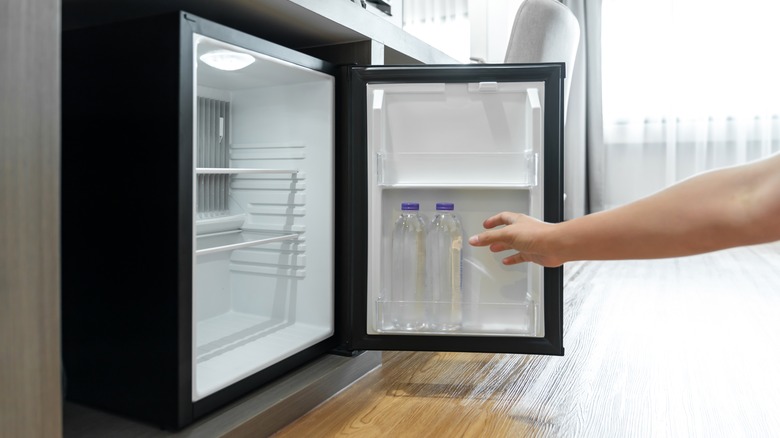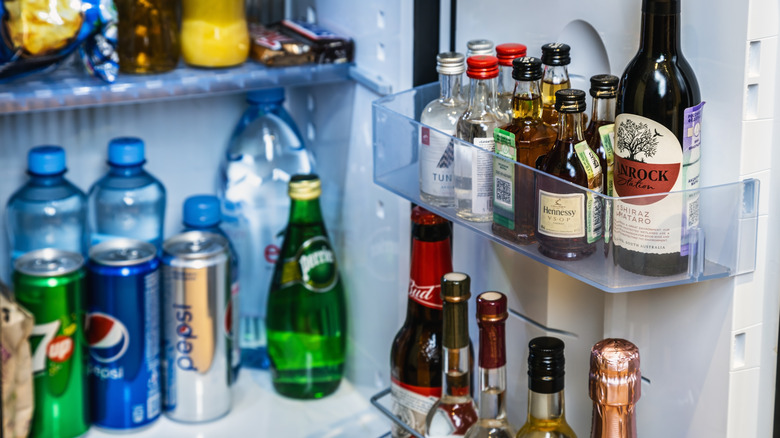The Revolting Reason You Probably Shouldn't Use Hotel Mini Fridges
Hotel mini fridges are one of the most underrated conveniences of a hotel room. When you're on vacation, it's common to go out to eat for several meals, and the ease of a hotel mini fridge means that you can bring leftovers home and don't have to worry about leaving wasted food on your plate.
Of course, there are safety measures that must be met when refrigerating food. In order for a refrigerator to properly slow bacteria growth, its temperature must be set to 40 degrees Fahrenheit or below (per U.S. News). Even foods that are properly stored in a refrigerator at that temperature can still grow bacteria, so you shouldn't keep meats such as cooked chicken in the fridge for more than four days, according to Glad.
Surprisingly, despite the convenience of a hotel mini fridge, you might want to think twice about storing any leftovers in there — it turns out it could do you more harm than good. Plus, there are some foods that just aren't worth saving as leftovers.
Use the hotel mini fridge for drinks instead of food
If you were considering storing perishable food items in your hotel room, think again. A recent study from Lifehacker reveals that hotel mini fridges actually often aren't kept cold enough to keep your food at a safe temperature. The outlet even reports that one hotel on Tripadvisor revealed that their fridges are actually just "coolers" and not refrigerators at all, with one guest saying the cooler temperature was a whopping 59 degrees. Since beverage coolers can look just like mini fridges, it can sometimes be hard to tell which is which.
The easiest way to check your mini fridge's temperature is to feel around in the small space to see if it feels as cold as your at-home refrigerator. While that's a solid first step, you could go even further by packing a portable refrigerator thermometer, which you can insert into the mini fridge to see if it's safe enough to store food. Or, you could simply avoid storing food in the mini fridge altogether, although keeping drinks other than milk in it should be ok.
In addition to unsafe temperatures, there are other reasons your leftovers could be making you sick, especially those more susceptible to bacteria growth.

